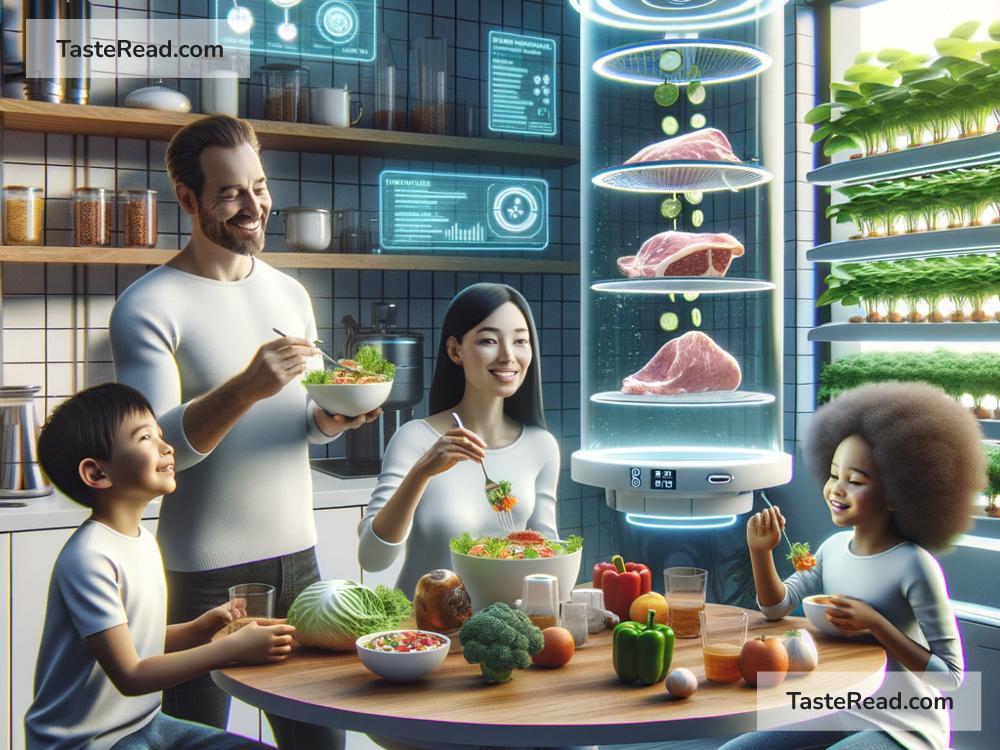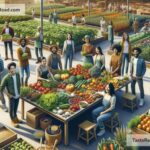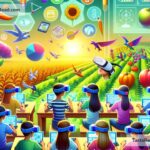The Future of Food Culture Evolution
Food has always been more than just fuel for our bodies—it’s a symbol of history, culture, and connection. Every country, region, and community shares a unique food story. Over time, globalization, technology, and social trends have shaped how we grow, prepare, and enjoy food. As the world changes rapidly, the evolution of food culture is bound to look very different in the future. Let’s explore what might be ahead for the ways we eat, cook, and share meals.
The Rise of Sustainability in Food
One of the most important changes in the future of food culture will revolve around sustainability. Climate change has already started affecting how food is grown. Droughts and extreme weather make farming harder, threatening global food supplies. As a result, many people are looking for ways to reduce waste, eat plant-based meals, and support eco-friendly farming practices.
In the future, “local” and “seasonal” food might become a bigger priority as people grow conscious about reducing environmental impacts. Urban farming, rooftop gardens, and vertical farming could help cities grow their own food, cutting down the emissions caused by transporting goods across long distances. Technology will likely play a huge role here—smart systems could manage water use and soil health to create sustainable food sources.
Lab-Grown Meat and Alternative Proteins
Meat has a complicated future. Currently, producing traditional meat requires large amounts of land, water, and energy. It’s also responsible for a significant amount of greenhouse gas emissions. To solve this problem, scientists are working on lab-grown meat, which is created without raising animals. This technology could reduce environmental harm while still offering people the meat they enjoy. With time, lab-grown options might become more affordable and widely accepted, turning them into a part of everyday meals.
Similarly, plant-based protein alternatives like lentils, chickpeas, tofu, and peas are growing more popular. Companies have also been experimenting with “meat-like” products such as burgers and sausages made from plants. As awareness grows around health and environmental benefits, these alternatives could eventually replace traditional meat in many kitchens.
Technology Transforming How We Eat
Robots and Artificial Intelligence (AI) might change how we prepare food in the future. Imagine machines cooking the perfect meal for you or grocery apps automatically suggesting recipes based on what’s in your fridge. AI could even help chefs create new dishes by analyzing flavor combinations and nutritional content.
Delivery services, which became hugely popular during the pandemic, may continue evolving. Drones and autonomous vehicles could shorten delivery times, bringing hot meals straight to your door in minutes. Cloud kitchens—restaurants that exist only online for delivery orders—could become widespread, making dining more convenient than ever.
Personalized Nutrition and Health
Nutrition will likely become much more tailored to individuals in the future. Scientists are learning more about how unique our bodies are—from genetics to gut health—and this understanding may transform how we think about food. Instead of following one-size-fits-all diets, people might use personalized nutrition plans based on their DNA, daily activity, or medical needs.
New technologies such as wearable health trackers and dietary apps could work together to help people choose the best foods for their bodies. For example, imagine a smartwatch that suggests the perfect lunch to match your energy needs, or even a kitchen that monitors your vitamin intake and recommends recipes accordingly.
Blending Global Cultures
As the world becomes increasingly connected, food cultures are blending like never before. Already, fusion cuisines—like Korean tacos or sushi burritos—show how exciting it can be to mix global ingredients and techniques. This trend is likely to grow as people travel more, share recipes online, and experiment with new flavors.
In the future, you might see even more adventurous combinations that borrow from different parts of the world. But food will likely evolve beyond dishes alone—it might also include new ways of eating together, such as online cooking competitions, virtual dinners with friends across continents, or interactive food experiences powered by virtual reality.
Shifting Traditions
Although technological advances and social trends will reshape food, traditions will still play a vital role. People often use meals to connect with their culture and celebrate holidays or milestones. Even with modern tools in the kitchen, many families will continue passing down recipes and rituals, holding on to their food heritage.
However, food traditions will likely adapt in response to changing values. For example, younger generations may modify old recipes to make them more environmentally friendly—or healthier—while still honoring their cultural roots. Weddings, birthday dinners, or other celebrations could include more personalized meals, reflecting the tastes and diets of each guest.
Challenges Ahead
As exciting as the future of food sounds, it comes with challenges. Access to healthy, affordable food is still limited for many people globally. Innovations like lab-grown meat or personalized nutrition tools may initially only be available to wealthy nations or individuals.
To truly move forward, food culture must evolve in ways that are inclusive and accessible. Education about nutrition, investment in sustainable farming, and support for small-scale farmers will be key to ensuring everyone benefits from these advancements.
Final Thoughts
The future of food culture will likely be a fascinating blend of tradition and innovation. Technology will reshape how we grow, cook, and eat, while global connections will encourage creative ways of mixing flavors and styles. At the same time, sustainability will be at the heart of every change, as we strive to protect the planet for future generations. Whether it’s personalized nutrition plans or robots whipping up a meal in seconds, one thing is certain: food will remain a way for people to connect, celebrate, and create memories, now and in the years to come.
So, what’s on your plate for the future?


